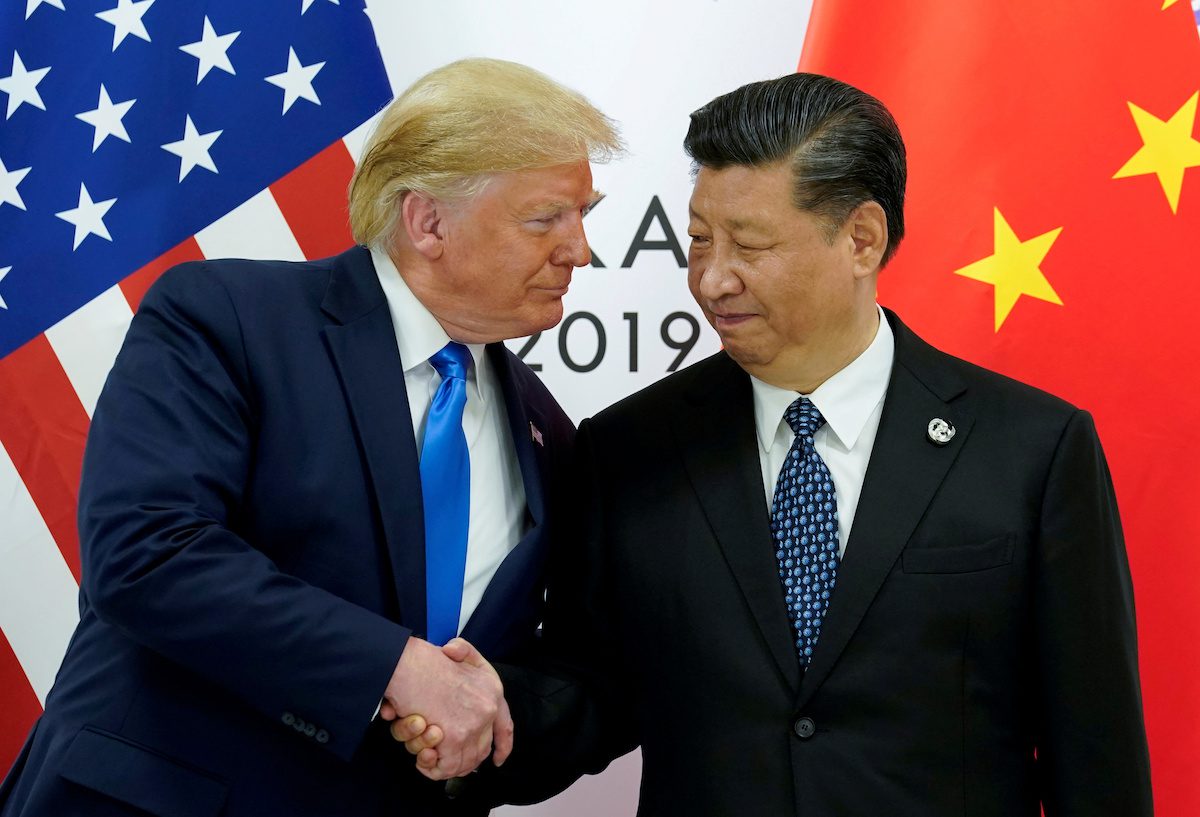By Hallie Gu and Ben Westcott (Bloomberg) — Soybeans and other grains surged as progress in negotiations between the US and China lifted hopes that the world’s two largest economies were edging toward a deal in their protracted trade war.
Soybean futures rose as much as 2.3% in Chicago, reaching a five-month high. That came after US Treasury Secretary Scott Bessent said China would make “substantial” purchases of the oilseed under a pact the two countries are close to finalizing. Wheat and corn also gained.
Agricultural trade was among a range of issues that American and Chinese negotiators said they came to terms on over the weekend, setting the table for leaders Donald Trump and Xi Jinping to finalize a deal and ease tensions that have rattled global markets. The two are expected to meet later this week in South Korea on the sidelines of the APEC summit.
There is more reason for hope this time, as remarks from the US side “give the market something real to hold on to, not just talk,” said Kang Wei Cheang, an agricultural broker at StoneX Group Inc. in Singapore.
“Optimism makes sense for now, but it may not last long. The trade flow has already changed, and China will probably keep relying mainly on South America,” Cheang said.
Soybeans have been a central point of tension between the two agricultural giants. China, the world’s top importer of the crop, has deployed it as a bargaining chip in its trade war with the US, shunning shipments from its second-largest supplier, and turning instead to South America for record imports. US farmers, suffering from financial strain as their top consumer walked away, have urged Washington to reach an agreement with Beijing.
Chinese crushers have already secured most of their soybean needs for this year and part of 2026, leaving limited room for new US sales. Ample inventories, additional local supplies, and sizable state reserves further cushion the market against potential shortages.
“Because China has bought a lot of soybeans out of Brazil and Argentina, its near-term need is modest,” said Gorey. “But where we should see it is a pick up in forward sales at some point. The issue for the market now boils down to timing, rather than size.”
On Monday, the Chinese Communist Party’s official mouthpiece called on the world’s biggest economies to “jointly safeguard hard-won achievements” from their latest trade talks but stopped short of confirming plans to renew purchases of US soybeans.
Traders, therefore, remain cautious.
“It’s a small step towards easing trade tension,” said Cheang at StoneX. “But it’s likely a short-term fix — trade ties will probably stay cautious and competitive overall.”
© 2025 Bloomberg L.P.

 Join The Club
Join The Club











